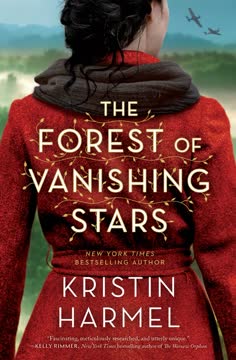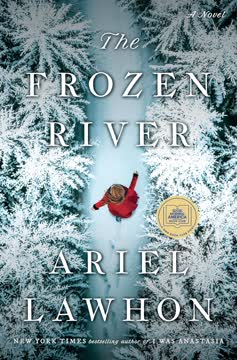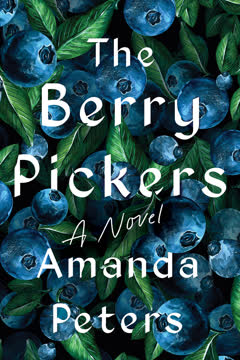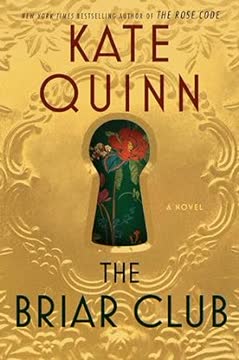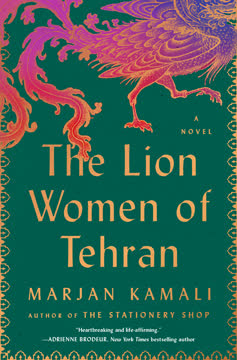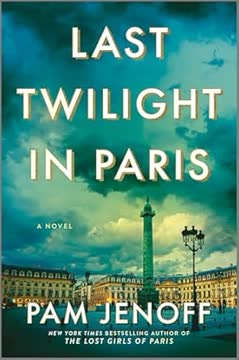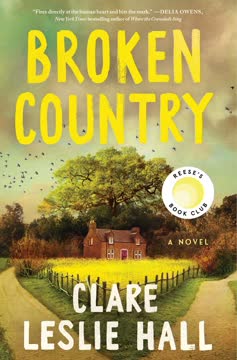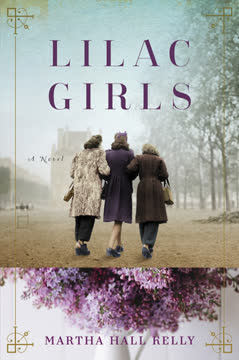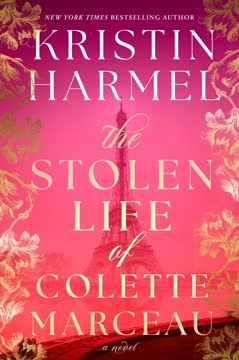Plot Summary
Stolen by the Forest
In 1922 Berlin, a mystical old woman named Jerusza kidnaps a two-year-old girl, Inge, from her Nazi-sympathizing parents, believing the child is destined for a greater purpose. Guided by visions and the whispers of the forest, Jerusza renames her Yona, meaning "dove," and raises her in the wilds of Eastern Europe. Yona's earliest memories are of trees, birds, and the old woman's cryptic lessons. She is taught to listen to the world's secrets, to trust nature over people, and to believe that her life is entwined with fate. The abduction severs Yona from her origins, but plants the seeds of a unique identity—one shaped by solitude, survival, and the mysterious call of the forest.
Lessons of Survival
Jerusza's teachings are relentless and dual-edged: Yona learns to kill and to heal, to recognize poisonous plants and to use them for medicine, to defend herself with violence and to nurture with compassion. The forest is both sanctuary and school, and Jerusza's love is as cold as the winters they endure. Yona is taught that trust is dangerous, that the world outside the trees is full of betrayal, and that her own life must be protected above all. Yet, for every lesson in death, there is a lesson in life, and Yona's heart remains open to the beauty and pain of existence. The old woman's warnings echo: the world is changing, and Yona's destiny is not her own.
Forbidden Human Connections
As Yona grows, her isolation is punctured by fleeting encounters with civilization. She glimpses families celebrating Hanukkah, feels the ache of loneliness, and questions Jerusza's rigid rules. A chance meeting with a boy named Marcin awakens in her a yearning for friendship and belonging, but Jerusza's fear and jealousy force them to move on. Yona's heart is torn between the safety of solitude and the risk of connection. The outside world is both alluring and terrifying, and Yona senses that her fate is tied to people she has never met, and to a history she does not understand.
Jerusza's Prophecy
As war looms, Jerusza's visions grow darker. She senses that Yona's past will return, and that the child she raised is meant to repair the world in ways neither can foresee. On her deathbed, Jerusza reveals the truth: Yona was stolen from Nazi parents, not abandoned, and her blood is both a curse and a gift. She warns Yona never to leave the forest, but also confesses her own doubts—was her "knowing" a gift from God, or madness? With Jerusza's death, Yona is left alone, burdened by secrets, and haunted by the prophecy that her life will alter the course of many others.
First Encounter with Suffering
Yona's solitude is shattered when she finds a feverish Jewish child, Chana, lost in the woods. Nursing her back to health, Yona learns of the horrors outside: ghettos, starvation, and the systematic murder of Jews by the Germans. The suffering of Chana's family, and Yona's inability to save them from their own mistrust and eventual execution, marks her with guilt and a new sense of responsibility. The forest can no longer be a hiding place; it must become a refuge for others. Yona's heart breaks, but her resolve hardens—she will not turn away from those in need again.
The Child in the Woods
Yona's encounter with Chana transforms her. She realizes that her knowledge of the forest is a gift meant to be shared. When she discovers a group of Jewish refugees, starving and desperate, she steps from the shadows to help them survive. Teaching them to fish, forage, and hide, Yona becomes their guide and protector. The group's gratitude and dependence awaken in her a sense of belonging she has never known, but also a fear of loss. The forest is no longer just her home; it is a sanctuary for the hunted, and Yona is its guardian.
Healing and Betrayal
As Yona integrates with the group, she forms a deep bond with Aleksander, a leader haunted by loss. Their love offers hope and comfort, but is threatened by jealousy, suspicion, and the ever-present danger of betrayal. Yona's outsider status, her mysterious origins, and her inability to fully trust or be trusted, create rifts within the group. When Aleksander's infidelity with Sulia is revealed, Yona is devastated. Her sense of self is shattered, and she flees, believing she is unworthy of love and belonging. The forest, once a place of safety, becomes a landscape of grief.
The Forest's Refugees
Despite her heartbreak, Yona's sense of duty draws her back to the refugees. The group has grown, joined by new families and survivors, each carrying their own trauma and hope. Yona's leadership is tested as she navigates the challenges of scarcity, illness, and the constant threat of discovery. She teaches, heals, and protects, but also learns from the resilience and faith of those around her. The forest becomes a living symbol of endurance, and Yona, though still an outsider, is recognized as the heart of their survival.
Becoming a Guide
Yona's role evolves from silent helper to acknowledged leader. She guides the group through the perils of the forest, teaching them to erase their traces, to move with the seasons, and to find sustenance in the harshest conditions. Her knowledge saves lives, but her humility and compassion inspire trust. The group's survival becomes a collective effort, and Yona learns the power of community, forgiveness, and shared purpose. The forest, once her only companion, is now filled with voices, laughter, and the fragile hope of a future.
The Price of Mercy
The group's safety is threatened by German incursions and the betrayal of trust. Yona is forced to make agonizing decisions—who to save, who to leave behind, when to fight, and when to hide. The arrival of a pregnant woman, the birth of a child in the swamp, and the deaths of beloved friends test her strength and faith. Yona learns that mercy often comes at a terrible cost, and that survival is not just a matter of skill, but of courage, sacrifice, and the willingness to bear unbearable loss.
The Swamp of Shadows
As the Germans launch a brutal campaign to clear the forests, Yona leads her group into the swamps—a place of mud, leeches, and near-starvation. Bound together by ropes and hope, they endure unimaginable hardship, clinging to life and to each other. The swamp becomes a crucible, stripping away all but the essential, and forging unbreakable bonds. When they finally emerge, battered but alive, they are changed forever. The forest has claimed them, but also given them back to the world as survivors.
Winter's Test
The return to the forest brings both relief and sorrow. The group mourns their dead, rebuilds their shelters, and prepares for another winter. Yona and Zus, drawn together by love and loss, find solace in each other, but are haunted by the ghosts of the past. The birth of new life, the laughter of children, and the rituals of faith offer moments of light in the darkness. Yet, the threat of betrayal, the pain of memory, and the uncertainty of the future remain. The forest is both graveyard and cradle, a place where hope and despair coexist.
Love and Loss
Yona and Zus's love deepens, but is shadowed by grief for those they have lost. Zus struggles with guilt over his murdered wife and child, fearing that loving Yona is a betrayal of their memory. Yona, too, is haunted by her origins and the fear that she is unworthy of happiness. Their relationship is tested by doubt, distance, and the ever-present danger of war. Yet, in moments of vulnerability and forgiveness, they find healing. Love, they learn, is not the absence of pain, but the willingness to embrace it and move forward together.
The Return of the Past
Yona's past returns with devastating force when she is recognized by her biological father, Siegfried Jüttner, now a high-ranking Nazi officer. The revelation of her bloodline, her mother's hidden Jewish heritage, and her father's obsession with purity and control force Yona to confront the truth of who she is. The collision of past and present, of blood and choice, threatens to destroy everything she has built. Yona must decide where her loyalty lies, and what it means to belong.
The Nun's Sacrifice
In a nearby village, Yona encounters a group of Catholic nuns who offer their lives in exchange for the safety of their townspeople. Despite Yona's desperate efforts to save them, the nuns are executed by the Germans. Their sacrifice, and the faith that sustains them, leave a profound mark on Yona. She learns that goodness is not always rewarded, that evil often triumphs, and that the only answer is to keep choosing compassion, even in the face of despair. The nuns' martyrdom becomes a lesson in the cost and necessity of hope.
The Truth of Blood
In a final confrontation, Jüttner reveals that Yona's mother was Jewish, making Yona a Jew by blood according to both Nazi and Jewish law. The irony is bitter: the Nazi officer's daughter is the very thing he has sworn to destroy. Yona's sense of self is shattered and remade—she is not defined by her origins, but by her choices, her love, and her willingness to fight for others. The truth of blood is both a curse and a liberation, and Yona embraces her identity as a survivor, a Jew, and a child of the forest.
The Final Confrontation
Jüttner, driven mad by loss and obsession, tracks Yona and Zus into the forest. In a moment of ultimate danger, Yona sacrifices herself to save Zus, taking a bullet meant for him. As she lies dying, she uses the skills Jerusza taught her to kill her father, ending the cycle of violence and hatred. In her final moments, Yona finds peace—not in victory, but in the knowledge that she has chosen love over fear, and that her life has mattered. Zus's grief is tempered by the memory of their love, and by the hope that endures.
The Vanishing Stars
Years later, the survivors emerge from the forest, forever changed. Some emigrate, some remain, all haunted by loss and sustained by the bonds forged in darkness. Yona's story becomes legend—a tale of the witch of the woods, the woman with mismatched eyes, the guide who saved lives and vanished into the trees. Her children and grandchildren carry her memory, and the forest remains a place of both sorrow and hope. The stars that once seemed to vanish in the darkness are revealed to be the souls of the lost, shining on in the night, a testament to endurance, love, and the power of choosing light over darkness.
Characters
Yona (Inge Jüttner)
Yona is the protagonist, stolen as a toddler from her Nazi-sympathizing parents and raised in the forest by the enigmatic Jerusza. Her mismatched eyes and dove-shaped birthmark mark her as special, and her upbringing is a blend of harsh survivalism and mystical prophecy. Yona is shaped by solitude, loss, and the burden of destiny, but also by an innate compassion and longing for connection. Her journey is one of self-discovery, as she moves from outsider to leader, from abandoned child to protector of the vulnerable. Yona's greatest struggle is with identity—torn between her blood, her upbringing, and her choices. Her arc is one of transformation: she learns that belonging is not given, but chosen, and that love, even when painful, is worth the risk. Her ultimate sacrifice cements her as a symbol of hope and resilience.
Jerusza
Jerusza is an old woman with a gift—or curse—for knowing things others cannot. She is both witch and mother, prophet and pragmatist, raising Yona in the wilds with a blend of love, fear, and fatalism. Jerusza's teachings are harsh, emphasizing survival, distrust, and the dangers of the outside world. She is haunted by her own past, by the voices she hears, and by the knowledge that her actions will shape the fate of many. Jerusza's psychoanalysis reveals a woman torn between duty and regret, faith and madness. Her death leaves Yona alone, but her lessons—both wise and flawed—echo throughout the story, shaping Yona's choices and the lives she touches.
Zus
Zus is a Jewish survivor, haunted by the murder of his wife and daughter. He is strong, resourceful, and a natural leader, but his grief makes him wary of love and connection. Zus's relationship with Yona is central to both their arcs: he is drawn to her strength and compassion, but fears betraying the memory of his lost family. His journey is one of healing, as he learns to open his heart again, to forgive himself, and to find hope in the midst of despair. Zus's development is marked by courage, vulnerability, and the willingness to fight for others, even at great personal cost.
Aleksander
Aleksander is the initial leader of the refugee group Yona joins. Intelligent, capable, and burdened by survivor's guilt, he forms a deep bond with Yona, but is ultimately undone by his own weaknesses—jealousy, infidelity, and the inability to fully trust or be trusted. His relationship with Yona is passionate but fraught, and his betrayal wounds her deeply. Aleksander's arc is tragic: he seeks redemption through sacrifice, ultimately giving his life to protect others. His story is a meditation on the costs of leadership, the dangers of pride, and the possibility of grace.
Chaim
Chaim is Zus's brother, a man of quiet strength and deep faith. He is devoted to his family and to the group, often serving as a mediator and voice of reason. Chaim's psychoanalysis reveals a man shaped by loss but sustained by hope. He is a bridge between past and future, tradition and adaptation. His relationship with Zus is central, providing both support and challenge. Chaim's development is marked by resilience, humility, and the ability to find meaning in suffering.
Rosalia
Rosalia is a fierce, capable woman who has lost her husband and children to the Nazis. Her pain fuels a desire for revenge, and she becomes a key figure in the group's decision to fight back. Rosalia's arc is one of transformation: from stoic survivor to active combatant, and finally to martyr. Her death is both a tragedy and a catalyst, forcing the group to confront the costs of violence and the limits of justice. Rosalia embodies the tension between vengeance and mercy, and her memory lingers as a challenge to the living.
Sulia
Sulia is a member of the refugee group who struggles with jealousy, insecurity, and a longing for validation. Her rivalry with Yona, particularly over Aleksander, leads to betrayal and division. Sulia's psychoanalysis reveals a woman shaped by fear and the need to belong, but unable to overcome her own bitterness. Her arc is a cautionary tale about the dangers of envy and the importance of forgiveness.
Siegfried Jüttner
Jüttner is Yona's biological father, a high-ranking Nazi officer whose love is twisted by obsession with purity and control. His inability to accept his daughter's choices, and his eventual revelation of her mother's Jewish heritage, make him both villain and victim. Jüttner's psychoanalysis reveals a man destroyed by loss, guilt, and the poison of hatred. His final confrontation with Yona is both a reckoning and a release, ending the cycle of violence that began with her abduction.
Sister Maria Andrzeja
Sister Maria Andrzeja is a Catholic nun who offers her life to save others. Her compassion, courage, and unwavering belief in goodness leave a profound mark on Yona. The nun's psychoanalysis reveals a woman who finds meaning in sacrifice, who believes in the power of prayer and the necessity of action. Her death is a testament to the limits and possibilities of faith in a world consumed by evil.
Chana
Chana is the Jewish child Yona finds in the woods, whose suffering and death awaken Yona to the realities of the Holocaust. Chana's brief presence is a symbol of innocence destroyed, but also of the enduring need for compassion. Her memory haunts Yona, driving her to help others and to refuse the comfort of isolation.
Plot Devices
Duality of Survival and Compassion
The novel's structure is built on the tension between survival and compassion. Yona's training in the forest is not just about staying alive, but about learning when to kill and when to heal, when to hide and when to reach out. This duality is mirrored in the group's journey: they must erase their traces to avoid death, but must also risk exposure to save others. The plot uses this device to explore the costs and rewards of vulnerability, the necessity of community, and the dangers of isolation.
Prophecy and Foreshadowing
Jerusza's prophecies, the recurring motif of the vanishing stars, and the whispers of the forest all serve as foreshadowing devices. The narrative is laced with warnings—of returning pasts, of coming danger, of the need for sacrifice. These elements create a sense of inevitability, but also of agency: Yona is both bound by fate and free to choose. The structure uses prophecy to heighten tension, to connect past and present, and to frame Yona's journey as both personal and universal.
Cycles of Betrayal and Redemption
The plot is driven by cycles of betrayal—by parents, lovers, friends—and the possibility of redemption. Yona's relationships with Jerusza, Aleksander, Zus, and her father are all marked by trust gained and lost, by the pain of abandonment and the hope of forgiveness. The narrative structure uses these cycles to explore the complexity of human connection, the difficulty of healing, and the necessity of choosing love even after loss.
The Forest as Character and Symbol
The forest is more than a backdrop; it is a living character, a source of wisdom, danger, and transformation. Its seasons mirror the group's journey, its secrets shape the plot, and its embrace offers both sanctuary and challenge. The forest symbolizes the possibility of renewal, the persistence of life, and the mystery of fate. The narrative uses the forest to connect characters, to mark transitions, and to ground the story in a world both real and mythic.
Identity and the Meaning of Blood
The revelation of Yona's Jewish heritage, the question of what makes a person who they are, and the tension between blood and choice are central plot devices. The narrative structure uses these themes to interrogate the meaning of identity, the power of history, and the possibility of transformation. The plot's twists—Yona's abduction, her father's confession, her embrace of her Jewishness—are all framed by the question: are we defined by our origins, or by our actions?
Analysis
The Forest of Vanishing Stars is a profound meditation on identity, survival, and the redemptive power of compassion in the face of unspeakable evil. Through Yona's journey from stolen child to reluctant leader, the novel interrogates the boundaries between blood and choice, solitude and community, vengeance and mercy. The forest, both real and symbolic, becomes a crucible in which characters are stripped to their essence, forced to confront the darkness within and without. The story's modern resonance lies in its refusal to offer easy answers: goodness is not always rewarded, love does not erase pain, and survival often demands impossible choices. Yet, the novel insists on the necessity of hope, the possibility of healing, and the enduring value of kindness. In a world where hatred and violence threaten to erase the vulnerable, The Forest of Vanishing Stars reminds us that the light of a single act of compassion can illuminate even the deepest darkness, and that the legacy of survival is not just endurance, but the courage to choose love, again and again.
Last updated:
Review Summary
The Forest of Vanishing Stars is a well-researched historical fiction novel set during World War II. It follows Yona, a woman raised in the Polish forest, who helps Jewish refugees survive. Readers praise the unique perspective, atmospheric writing, and emotional depth. Some found the plot unrealistic at times, but most appreciated the powerful storytelling and exploration of survival, bravery, and humanity. The book's extensive research and basis in true events impressed many readers, though some felt the romance elements unnecessary. Overall, it's a moving and memorable tale that sheds light on a lesser-known aspect of Holocaust history.
Similar Books
Download PDF
Download EPUB
.epub digital book format is ideal for reading ebooks on phones, tablets, and e-readers.
